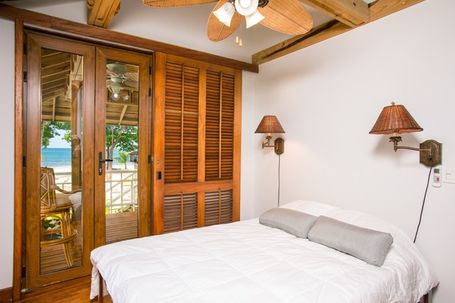There are numerous alternatives to hotels that won’t sacrifice cleanliness, safety, and comfort
Restricting yourself to hotels have been cited as a costly mistake a traveler could make; especially if you’re one of those budget-efficient travelers who love to save as much as you can.

Hostels are always a great alternative to hotels
The general expectations for hostels would be shared rooms. But these days, a lot of hostels also provide private rooms as well. Private rooms are generally more expensive. But it’s great for people who need their privacy. Opting for hostels is a great way to meet fellow travelers.
Another great choice that’s becoming more popular: Apartments
It’s been known that sites like Airbnb are simply revolutionary. It changes dramatically the way people travel around the world. With home rentals, you can often both meet with locals and have a guaranteed place to stay.
For home rentals, it would be so much cheaper for groups or families since the cost is shared. It’s a more affordable option compared to staying at a hotel.
Say hello to Couchsurfing
This is probably one of the very few legit free ways to stay. This should not be your primary method of accommodation if you’re staying for a long time. A week stay in Couchsurfing, for example, is generally considered to be quite long.
A lot of hosts only allows you to stay two nights at most, initially. You need to remember that everything is up to your hosts. And with everything that comes without a price tag, it has certain expectations imposed on you.
It’s your job to find out about this. For example, some hosts clearly stated that you need to pay for meals, then go out to find other dining options if you’re not interested in what they offer. But the most general expectation from the Couchsurfing community is the interaction with hosts.
Sure, it’s free.
But that does not mean you can just use their place to crash for the night and then leave. Be courteous to your hosts. Interact with them on a regular basis. Bring them some simple gifts from your home country. And it does not have to be expensive gifts. Even unique snacks or food are sometimes a good choice.
There’s a general rule of couch surfing, which is also the very foundation in which the community is built; sharing. You’re generally expected to socialize with your hosts. The community is founded through communication. As with any community.
Share stories. And in turn, listen to their stories. It can be anything from your travel experiences to random things about yourself. If you’re new to traveling or the travel community in general, then ask questions! Chances are, people who decide to host are travelers themselves.
It’s an excellent opportunity to gain knowledge from fellow travelers. make good use of it.
If you and your hosts get along, you may even be allowed to stay for a longer period! This is also a great way to meet the locals. As long as you do it right, it’s beneficial for both solo travelers and groups alike.